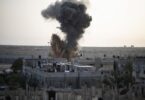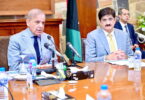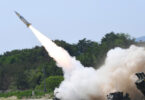F.P. Report
ISLAMABAD: Leaders of Association of South Asian Regional Cooperation through a video link conference on Sunday called for called upon collaborated and joint efforts to overcome the pandemic.
Debating the situation arising after spread of coronavirus in the region, they shared views for formulating a joint strategy to cope with the pandemic.
“It is a matter of concern that COVID-19 has been reported from Jammu and Kashmir and in view of a health emergency, it is imperative that all lockdown in the territory must be lifted immediately,” Special Assistant to the Prime Minister and Minister of State for Health Dr. Zafar Mirza said addressing a video conference of South Asian Association for Regional Cooperation (SAARC) hosted by Indian Prime Minister Narendra Modi to chalk out a plan against Covd-19.
Besides SAPM Zafar Mirza, Sri Lankan President Gotabaya Rajapaksa, Maldives’ President Ibrahim Mohamed Solih, Nepal’s Prime Minister KP Sharma Oli, Bhutan’s premier Lotay Tshering, Bangladeshi Prime Minister Sheikh Hasina, Afghan President Ashraf Ghani also participated in the video conference.
Dr Mirza said with over 155,000 infections, 5833 deaths and 138 countries involved, no nation and no region on earth could afford to be unresponsive to the prevailing situation.
“Pakistan shares common concern over the potential of COVID-19 affecting South Asia. All our countries have confirmed cases. There is no room for any complacency. While hoping for the best we have to be prepared for the worst,” he said.
Among other measures, he proposed instituting exit screening by member states for travelers in the region, and instituting mechanisms for learning from the effective efforts of China, a SAARC Observer State, in containment and control.
He called upon the South Asian nations for a calm, calculated, and deliberate response to fight coronavirus but strongly advised against panic. He highlighted Pakistan’s approaches and responses to the pandemic, underscored that Pakistan had been engaged in containment efforts from the outset of the outbreak. Pakistan’s proactive strategy and containment efforts had been recognized and commended by the WHO, he added.
Dr Mirza said the diagnosed cases in Pakistan had been isolated and contacts were being traced proactively. He said being personally overseen by Prime Minister Imran Khan, Pakistan’s response strategy had four pillars including governance and financing, prevention, mitigation, and communication.
He told the eight-nation body that Pakistan had decided to close all the educational institutions for three weeks, entire western border for two weeks, restrict international flights to three airports only and ban all large public gatherings.
He said COVID-19 had been characterized as a global pandemic, but at the same time it was deemed controllable, provided timely and appropriate public health measures were put in place.
He underscored the need to empower and mandate the SAARC Secretariat to act as a platform for regional efforts to combat the pandemic. He reiterated Pakistan’s earlier proposal of hosting SAARC Health Ministers’ Conference at the earliest opportunity.
Regarding the closure of Afghan border crossing pointed out by Afghan President Ashraf Ghani, Zafar Mirza said it was a temporary measure in light of the WHO guidelines.
Addressing the summit, PM Modi proposed creating a Covid-19 emergency fund in which India will contribute $10 million.
He also proposed training of ‘medical response team’ for Saarc countries and said that India’s Rapid Response Team of Saarc countries and said that India’s Rapid Response Team of doctors and specialists will be at the disposal of Saarc nations to deal with the pandemic.
Modi said, “Our neighbourhood collaboration should be a model for the world. We have to fight this battle together, and we have to win it together.”
Afghan President Ashraf Ghani said that India can play a key role in combating Covid-19 since India is part of the Shanghai Cooperation Organisation (SCO) as well as of Saarc and hence can help Afghanistan and other nations in learning best practices from China.
Maldivian President Ibrahim Mohamed Solih said that the priority now is to contain the virus at all costs. The geographical location of Maldives makes this a challenge and an opportunity as well.
President of Sri Lanka Gotabaya Rajapaksa emphasized on the need for South Asia to share ideas and best practices in order to face up to the challenge of the rapid spread of the virus.
He also said that the Saarc leaders should formulate mechanism for economies to tide over problems posed by coronavirus. Bhutanese premier Lotay Tshering said that the Saarc member states must be willing to share our limited resources and in addition to thinking about acute relief, the nations must also think of long term impact of the coronavirus.
Sri Lankan President Gotabaya Rajapaksa said that it is important to control rumours that create panic and that the is discussion on Covid-19 should not end here. “We must continue this further with our health officials,” he said.
Bangladesh Prime Minister Sheikh Hasina expressed hope that Saarc nations will be able to combat this situation together. Nepal PM KP Oli said that the need is to develop a Saarc mechanism for essential things in the fight against coronavirus.






